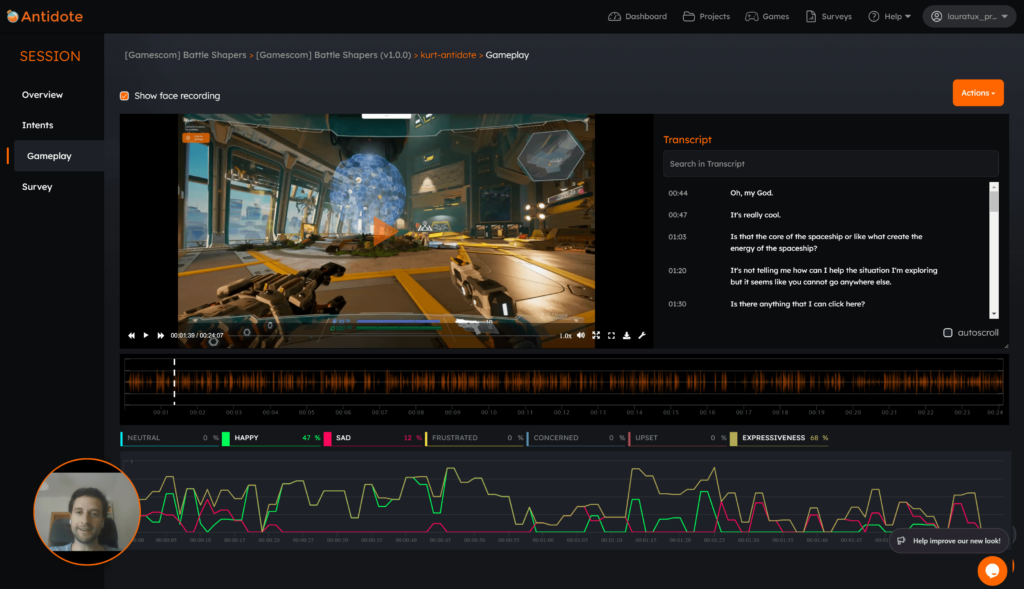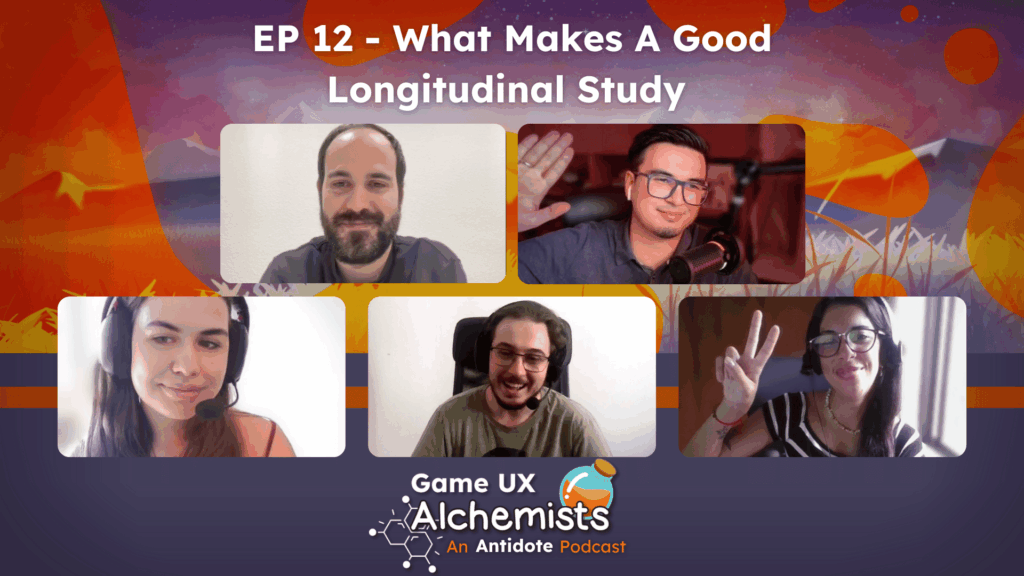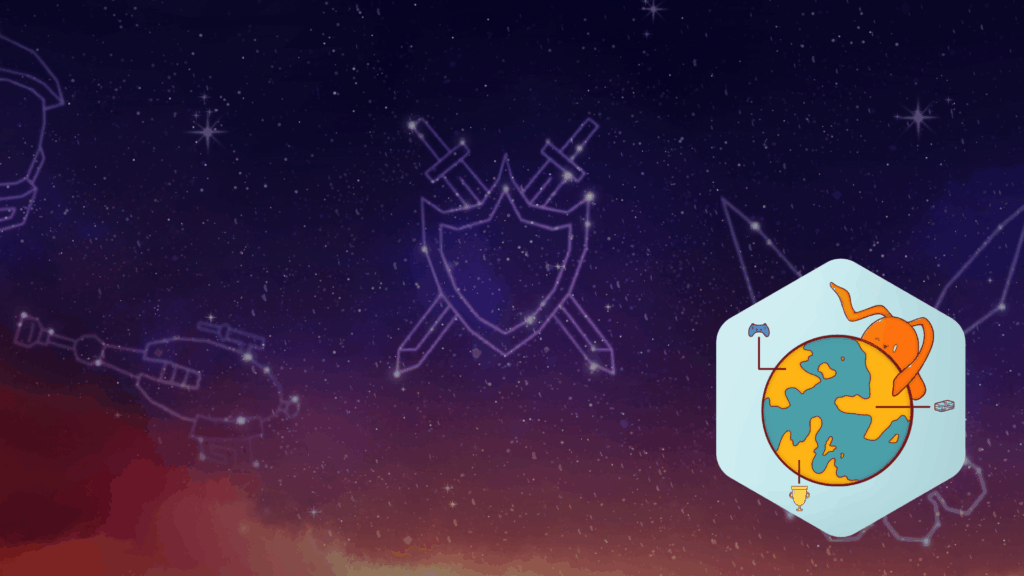Watch the full episode: The Role of AI in User Research (Game UX Alchemists Podcast)
In episode 6 of Game UX Alchemists, the team welcomes Kurt, CTO of Antidote and former indie game developer. The panel discussed one of the industry’s hottest topics: how AI is reshaping UX research in game development.
With AI tools becoming increasingly more sophisticated, the conversation explores where these technologies excel and where they fall short.
Here’s a quick summary, enjoy the read 😊
AI as a Helpful Research Assistant
The panel agreed that AI excels at handling the grunt work of UX research.
Current AI applications that are proving genuinely useful include:
- Transcription and data processing helps convert gameplay recordings into searchable text
- Theme clustering identifies patterns and groups similar feedback automatically
- Sentiment analysis flags emotional responses in player comments
- Quick data retrieval acts as an advanced “Control+F” to find specific player mentions across sessions
As Lucy explains, AI helps researchers “gather all the themes” and provides direct quotes with timestamps, allowing them to quickly jump to relevant moments in gameplay recordings.
(for example, by using our AI insights feature)
But the key thing to remember is that AI serves as a powerful assistant that reduces manual work, not a replacement for human analysis.
The Human Element: What AI Can't Replicate
Despite AI’s growing capabilities, the panel identified critical gaps that keep human researchers essential:
Emotional intelligence and context:
AI can flag when a player says “this is frustrating”, but it misses the bigger picture. As Alex noted, a player might express confusion initially but figure out the solution moments later, AI flags this as a problem, but human researchers understand it’s actually successful learning.
Real player experience:
AI agents lack the lived experience, emotions and expectations that real players bring to games. They can’t tell you if a game is truly fun, rewarding or immersive.
Complex problem-solving:
While AI can identify issues, it struggles with synthesizing insights into actionable solutions. There’s no “recipe for success” in game design and human creativity remains crucial for finding fixes.
Cultural and linguistic nuance:
AI often misses subtle communication patterns, especially when dealing with players whose first language isn’t English.
The Risks of Over-Reliance
The team discussed the topic of letting AI handle entire research processes. Or in other words, why it’s not the best idea:
Skill atrophy:
Kurt highlighted a growing concern. If people default to dumping problems into ChatGPT instead of developing their own problem-solving skills, they become less capable over time. The example of “vibe coding” developers who build apps quickly but can’t fix them when they break illustrates this risk perfectly.
Accuracy and accountability:
Both Lucy and Alex emphasized that AI-generated insights must be verified by human researchers. When you’re responsible for guiding game development decisions, blindly trusting AI analysis without verification is “really bad”.
Lost qualitative insights:
Human researchers bring contextual understanding, can ask follow-up questions based on emotional cues and provide the empathy needed to truly understand player experiences.
AI vs. Human Playtesters: A False Choice
When discussing AI agents as potential replacements for human playtesters, the panel was unanimous: it’s not happening anytime soon.
What companies are missing:
The push toward AI playtesters is often driven by cost concerns and the challenge of player recruitment. However, as Kurt points out, AI agents aren’t plug-and-play solutions – they require significant development integration and customization for each game.
The emotional gap:
AI can identify bugs and usability issues, but it can’t tell you if a game is fun. It lacks the emotional responses, expectations and unpredictable human behavior that make playtesting valuable.
The bigger picture:
Using AI instead of human testers might seem cost-effective initially, but it often leads to launching games that don’t resonate with real players, ultimately costing more in the long run.
Final Thoughts
This wasn’t a debate about whether AI is good or bad for UX research.
AI certainly has its place in simplifying data processing and identifying patterns. But the human elements: empathy, contextual understanding and creative problem-solving – remain irreplaceable.
At least in the near future, AI can’t and won’t replace human researchers in game UX.
We hope you enjoyed this talk, we will see you in the next one 🙂



